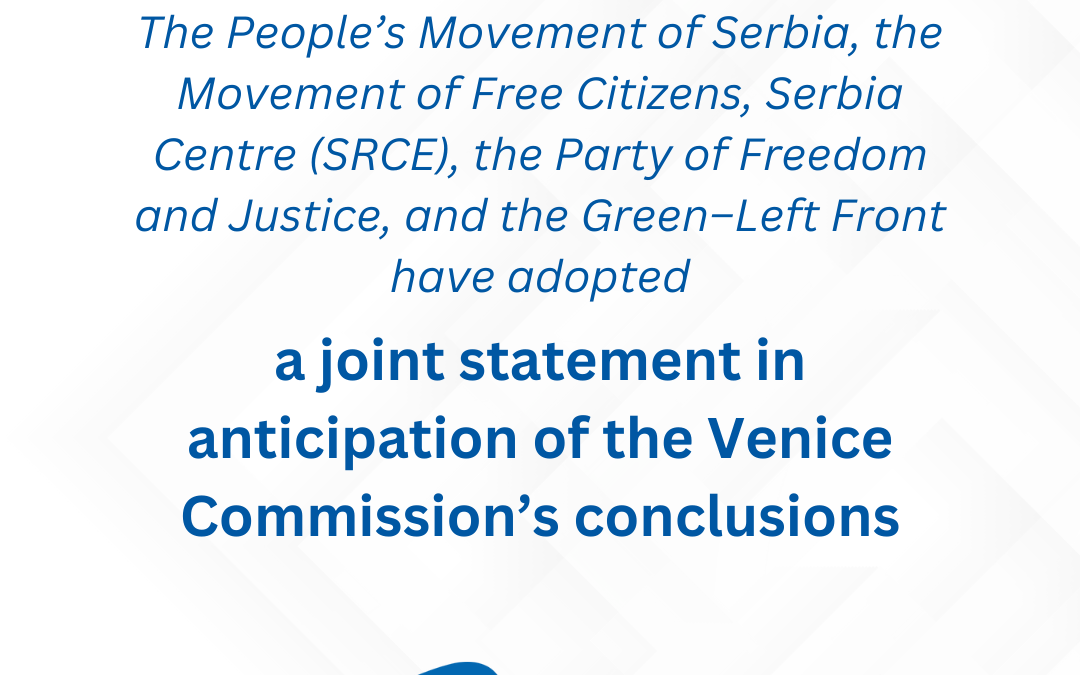
The EU-Serbia Joint Consultative Committee (JCC) held its 19th meeting on 7 April 2025 at the EESC in Brussels. This platform, established within the institutional framework of the EU-Serbia Stabilisation and Association Agreement (SAA), enables representatives from both the EU and Serbian civil society to monitor the country’s accession negotiations, discuss issues of common interest, and highlight concerns to be addressed on Serbia’s path towards the European Union.
At this occasion, JCC has adopted a declaration expressing deep concern over the growing political and institutional crisis in Serbia. The declaration issues a strong call for respect for the rule of law, media freedom, and institutional accountability.
Particular attention was given to the student protests that erupted following a tragic event in Novi Sad. The JCC stated it is closely monitoring the developments and fully supports the students’ demands for justice, accountability, and functional institutions. The Committee strongly condemned any form of violence against peaceful demonstrators and called for urgent investigations, including allegations of the use of sound weapons against citizens.
The declaration also called on the European Public Prosecutor’s Office to investigate potential misuse of EU funds, particularly regarding the reconstruction of the railway station in Novi Sad. Furthermore, the JCC expressed serious concerns about corruption, lack of transparency, and political influence over the judiciary, stressing that Serbia’s progress toward EU membership is contingent on genuine commitment to reforms.
Preparations for EXPO 2027 were among the central topics of the debate. The JCC raised alarm over provisions in the so-called “lex specialis” law, which allows state-owned enterprises to bypass standard public procurement procedures—an approach seen as opening the door to corruption, nepotism, discrimination, and security risks. The declaration calls for an urgent review of the law’s constitutionality and demands a mandatory public debate prior to any legislative changes. It also stresses that simplified procedures must not result in lowered safety or environmental standards during project implementation.
The JCC also criticized the lack of public consultation and social dialogue surrounding the controversial Jadar mining project, underlining that decisions with direct impact on public health and the environment cannot be made without the involvement of local communities and civil society.
The declaration further highlights the alarming increase in attacks on independent media and civil society organizations, including smear campaigns, legal harassment, and restricted access to public information. The Committee emphasizes that civil society is an essential partner in advancing reforms and safeguarding democratic values, and must be included in all phases of the EU accession process.
The JCC noted that Serbia’s EU integration process is currently stalled due to the absence of meaningful reforms in the areas of the judiciary, media freedom, and anti-corruption. It also raised concerns about potential manipulation of the electoral process and overall political instability in the lead-up to possible snap elections.
The declaration calls on Serbian authorities and EU institutions to follow up on the Committee’s recommendations through concrete monitoring mechanisms, institutional dialogue, and enhanced support to civil society. The next JCC meeting will take place in Belgrade during the second half of the year, providing a key opportunity to assess the credibility of Serbia’s EU path.
Read the full text of the declaration at: https://www.eesc.europa.eu/en/agenda/our-events/events/19th-meeting-eu-serbia-joint-consultative-committee#downloads



